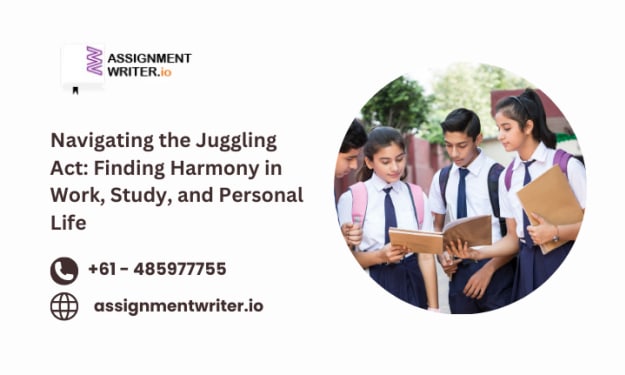10 mind tricks to learn anything fast
Learn anything within short periods

Hi everyone, and welcome to Top Think! Today, we're going to discover 10 mental shortcuts that can help you learn anything quickly.
Let's start with the first one, which is the sleep sandwich. How can you learn a lot of material in the shortest amount of time, say, if you just have one day to prepare for an important presentation? Most people attempt to cram; they spend hours going over their notes or reviewing their lines; if necessary, they will stay up late to finish the task. However, in spite of their best efforts, they wind up forgetting roughly half of what they intended to remember; the reason for this is that the majority of the material they jammed into their heads is never retained in their long-term memory. The issue with late-night study sessions is that you aren't giving your brain enough time to encode all the material you need to recall. ou can expose your brain to a plethora of new stimuli, but it only retains a small fraction of them. That is the main justification given by scientists for the sleep sandwich. You should study, sleep, and then study some more, as opposed to studying for a long time at a time. The sleep sandwich is a great way to learn faster because sleep makes it easier for you to retain more information. In fact, one of the most important benefits of getting a good night's sleep is that it helps your unconscious store a variety of things in your long-term memory. However, when you stay up late studying, you are not only impairing your brain's ability to learn and retain those memories, but you are also making it harder for your brain to function normally. Cme on, don't bother studying until 4:00 in the morning if you need to fit in some last-minute learning. slept soundly, and then resume your activities in the second morning. mastery via adaptation Do you know what the illusion of mastery is? When learning something new, it's common to fall into the trap of thinking you're an expert after spending a few hours studying a few basic techniques. Learning to draw is a wonderful example of this. Many people believe they are skilled artists after creating a good sketch because they perceive the quality of their work and believe they have all the knowledge necessary. However, just because something seems easy or boring doesn't mean you've mastered it, so how can you avoid falling into this trap? Making adjustments as necessary is a fantastic method to truly understand any subject. Let's imagine you've become rather proficient at sketching faces from the front. However, it's becoming a bit monotonous, and you feel like you're not learning anything. Now is the time to challenge yourself by making a tiny adjustment to your usual practice. Draw a face with a somewhat altered perspective. Yes, push yourself to draw more quickly or with a different tool. Each of these small adjustments is vital because they prevent your practice from getting monotonous or repetitive, assist you in improving your areas of weakness, and—most importantly—keep you in check while you're learning. the third topic of weaving Researchers found in 2008 that studying anything else can help you learn something other more quickly. In this study, participants were asked to identify specific painters based on six of their works. Number four: chewing gum. Some people chew gum to freshen their breath, while others just like the minty, fruity taste. But did you know that chewing gum could help your brain learn faster? Half of the participants saw each artist's paintings and blocks, while the other half saw their paintings all scrambled together. Who do you think retained more information? The scrambled group performed significantly better. Chewing gum has been shown to have a variety of cognitive benefits. To begin with, people who chew gum tend to be more alert and experience less stress. This was first observed in a 2011 study that had participants complete a series of tests in a distracting environment. Normally, the chaotic testing room would have thrown participants off because it was meant to cause anxiety and significantly lower their productivity. However, even in that distracting environment, participants who were chewing gum stayed more focused and produced less stress-related hormones. In other words, chewing gum helps people stay calm and concentrate. Moreover, a 2009 study found that chewing gum increases alertness and attention span Number Five: Intellectual Hydration: Did you know that something as simple as a glass of water can improve your brainpower? Two more studies from the early 2000s found that different flavors of gum actually make your brain more receptive and flexible. Obviously, there are dozens of studies showing the many advantages of this very simple habit; it helps you learn faster, perform better, and concentrate longer. So, the next time you sit down to work, don't forget to grab a stick of gum. A 2012 study found that staying hydrated during an exam can significantly affect your grade; in fact, college students who drank water during their exams performed up to ten percent better—a full letter grade higher—because of their increased hydration. Of course, staying hydrated helps with more than just test-taking techniques; it also improves your ability to process information, store new memories, and solve increasingly challenging problems. The reason for this is that water keeps your brain working as it should. However, the best part is that there is never a bad time or place to stay hydrated. For example, if you're enjoying a book on your couch, it would only take a few extra minutes to make yourself a cup of tea. That one cup does much more than just keep your body hydrated; a 2014 study found that it strengthens your long-term memory, quickens your short-term memory, and makes you feel excited about learning something new. Therefore, the next time you're studying, reading, or even listening to a podcast, grab a drink of water. Your brain will thank you. Number 6: Use Multiple Media: Do you always study in the same way? Have you used study guides or flashcards for every test you've ever taken? If so, you may need to switch things up. Try using different media while you study. For example, you could use flashcards, draw a diagram, and read the material aloud. By combining different study methods, you can activate new brain regions, store more detailed sensory information, and start understanding concepts from different angles. Try using a variety of media to absorb knowledge more quickly. speed at number seven The average human can read at a speed of about 200 words per minute, or roughly two minutes each page. While this may seem quick, it's actually not that much faster than individuals read a century ago. Here's the issue, though. Every year, the amount of knowledge in the world doubles. How can one keep up with this? The simplest solution is usually the best. You can teach yourself to read between 700 and 1,000 words per minute in a matter of weeks if you can digest knowledge more quickly. You won't be able to read everything there is to read, but you'll certainly be able to get through a large portion of it. Number 8: Musical stress relief: Many people find that studying with music playing in the background helps them be more productive, while others require it to focus. This begs the question: Does music actually accelerate learning? The biggest benefit of listening to music is that it's a major stress reliever, significantly reducing test anxiety and increasing overall feelings of relaxation so you can perform at your best. In other words, music improves your mood, speeds up your cognition and helps you think clearly, which means you can be more confident and productive no matter what you're working on. Numerous studies have shown that listening to music improves memory by engaging different areas of the brain. How much of your notes do you actually remember when you read through them all at once? very likely far less than you anticipate the human brain isn't designed to store massive volumes of information at the same time we can interact with all kinds of stimuli every day you hear thousands of sounds and see millions of shapes but your long-term memory is a lot slower that's why practicing in pieces is such an efficient way to learn instead of spending a whole day going through all your notes just go through a few pages each day if you spend smaller chunks of time learning small chunks of information then you'll find yourself retaining a whole lot more .number 10 the hard road when you have to learn something new you probably start searching for shortcuts right everyone wants to know the fastest and easiest way to memorize things but the truth is taking the hard road is almost always more efficient in the long run take something like handwriting your notes it's a lot slower than type and less convenient but those handwritten notes really stick in your memory even if it seems like a waste of time you'd have to retype your notes again and again to have the same cognitive impact my point here is that shortcuts don't always help you learn faster more often than not the most challenging path is also the most effective hey thank you for watching top think and be sure to subscribe because more incredible content is on the way
About the Creator
Enjoyed the story? Support the Creator.
Subscribe for free to receive all their stories in your feed. You could also pledge your support or give them a one-off tip, letting them know you appreciate their work.





Comments
There are no comments for this story
Be the first to respond and start the conversation.